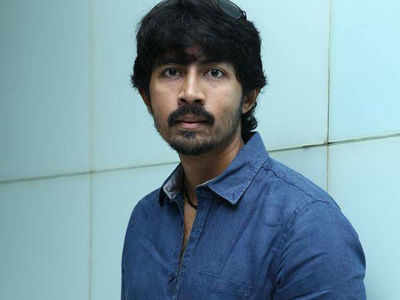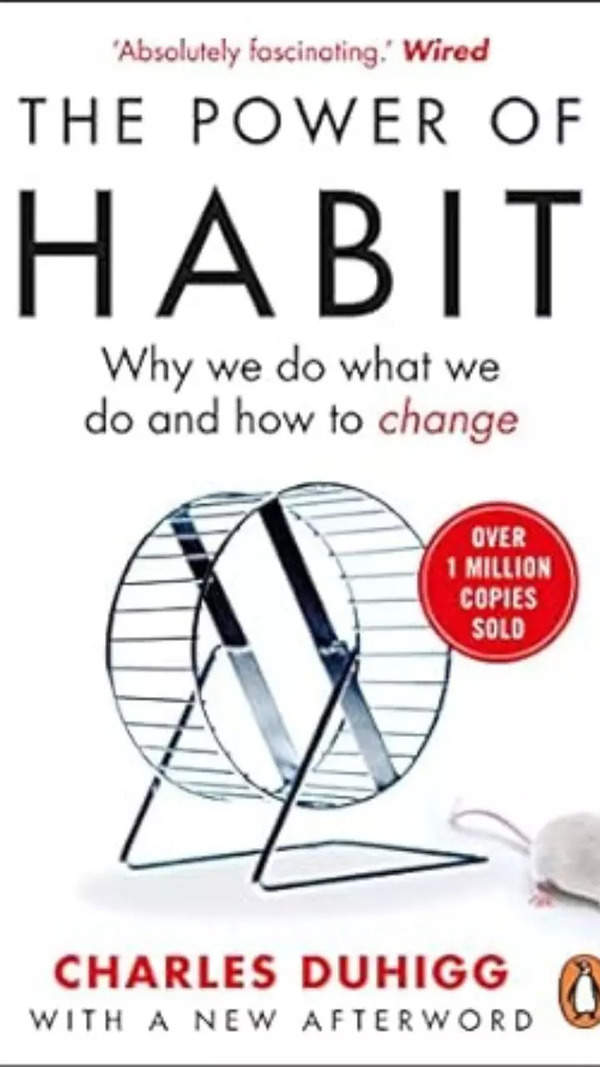- News
- entertainment
- tamil
- movies
- Are our theatre actors getting a raw deal on the big screen?
Trending
This story is from November 7, 2016
Are our theatre actors getting a raw deal on the big screen?
Unlike their Bollywood contemporaries (like Naseeruddin Shah or Kalki Koechlin), who managed to break into the film industry with powerful roles, actors in Kollywood seem to be getting a raw deal.

Chennai has a colourful theatre scene, with young and old theatre groups staging plays almost every other week in the city. While some of them have stuck to theatre, few others have made inroads into the film industry as well. Though there was a time when actors, who came from a theatre background like Sivaji Ganesan, Manorama or a MR Radha, shone bright in the film industry, of late we don���t see too many stalwarts from the theatre industry getting that opportunity.Unlike their Bollywood contemporaries (like Naseeruddin Shah or Kalki Koechlin), who managed to break into the film industry with powerful roles, actors in Kollywood seem to be getting a raw deal.
Recently, theatre personality, stand-up comedian and actor Karthik Kumar, who took the industry by surprise with his blog post on how he has failed as an actor, also pointed out that theatre personalities don���t get treated equally in the film industry. He wrote, ���Many of my comrades from theatre get treated disrespectfully ��� this doesn���t mean we are treated badly. It means we don���t get treated well or as equals. Our time and value will be hugely compromised under the promise and veil of a ���good role��� ���character��� etc. Our need to find that special acting fix brings us to the honey and then we get captured in the myriad ways of assistant directors, executive producers etc. We will get smiled at, but that���s about it. Your last payments won���t come, your dates will be booked and unbooked at will and your scene won���t even be shot, leave alone being edited out.���
Stop stereotyping
Theatre person Lakshmi Priyaa Chandramouli, who broke into the film industry with Sutta Kadhai, says, ���We crack the code to get our way up in the industry, and I must say that it is definitely not an easy task. The avenues to act are limited ��� it is either theatre or films. We have a certain love for acting that we overlook these tough times. But it is a struggle to get good roles.��� Stereotyping is one thing that should stop right away. ���As actors who come from a theatre background, people assume that we will do only certain kinds of roles. They don���t understand the fact we want to do varied roles. Some directors have said blatantly that we can do only supporting roles. They don���t even consider us for lead roles. They see the commercial value of an actor,��� she rues.
Better planning is needed
Better planning would make things better for actors, says Kalaivani adding, ���I was called for a film, but they didn���t tell me what role I would be playing. Once I went to the set, I kept asking the director about my role and he was busy doing something else. Later, in a jiffy he said I would be playing the hero���s mother. Once I got dressed up, an associate who I had earlier worked with walked in to greet me. But he informed that the hero doesn���t have a mother in that film. It was much later in the evening that I figured out that I am playing a neighbour���s role. Most of the day was already wasted by then!���
Karthik Kumar says, ���In the absence of enough acting schools and other training grounds for acting, why don���t they treat actors who have a significant theatre background respectfully? And by respect and importance, I don���t mean that you give us better vanity vans, but I am talking in terms of roles and what our part is. We can be given the script before so that we come prepared. Wasting my time simply means that there is a great chance that you would not utilise me at all. You give that regard to an actor who probably gets `2lakh a day. They utilise their presence by the minute. I am not saying that this has happened to me. But I have seen this happen to others.���
There should be mutual understanding
Theatre person and actor Mathivanan Rajendran says that there is a huge organisational difference between theatre and films. ���In theatre, there���s lesser money involved and the number of people who are working for a production is lesser. It is the opposite for films. The purpose of both is different, too. I feel the lack of understanding between these two, is what leading to this trouble. Theatre actors don���t understand how films would work and vice versa. Film directors don���t understand that theatre actors will be willing to improvise a certain role. In the end, some of these projects are hastily done,��� he says.
Recalling a bitter experience, Mathi says, ���I had one director, who was high on spirits, saying that theatre actors have a lot of attitude and are stupid. I couldn���t do much as I choose not to create a scene. Though there is a lot of money involved, and you should realise that the end of the day, you owe yourself some self-respect. We shouldn���t be pleasing anyone here. Theatre actors who are doing films should take up a project only if they like it.���
Actor Guru Somasundaram, who has over 10 years of experience in theatre, can���t agree more. ���Initially, I didn���t get into theatre because I wanted to do films. I got an opportunity only after a director saw my theatrical performance. But from the very beginning I was sure that I won���t go in search of work. I did theatre for 10 years before I got the opportunity to work in Aaranya Kandam in 2009. I was getting the same kind of role that I did in the film, so I decided to take a break before I signed my next film. Plus, I didn���t want to be stereotyped. As an actor you can do only three types of role ��� boss, middle man and slave. I go by a certain pattern by choosing to do one film in each type and repeating the process all over again. You need to have self-esteem and do what you like. However, this shouldn���t turn into arrogance,��� he says.
Pay for experience and talent
As far as payment is concerned, Lakshmi suggests that a corporate pay model would work best. ���The film industry should work like corporate offices. One should be treated and paid (at least reasonably) considering the experience theatre actors have when they step into the industry,��� she says. But Kalaivani points out that payment are a problem for all artistes. She says, ���Irrespective of whether you come from an acting school, theatre background or an amateur, payment is a problem for everyone.���
Better casting processes could change the game
Mathivanan suggests that that a better casting process could be a potential game changer. ���They don���t have casting directors here, who would ideally choose an actor for a particular role. If there���s better eco-system here, these issues wouldn���t even crop up.��� Karthik has a different view, though, ���In Kollywood, instead of casting directors we have assistant directors. But I must say they are much more clued in about us and are a bright bunch. They watch plays, know our background and even watch several short films.���
Young directors are a smart bunch
Most of them say that younger lot is a lot more understanding and respectful. ���There are directors who call us for our acting prowess. They know that we can finish a shot without many retakes. Things are slowly changing��� actors like Guru Somasundaram who come from a theatre background have managed to break into the scene with powerful roles,��� says Lakshmi.
���When I was doing theatre, I happened to bag Devathai. Director Shankar waited for me to work on Mudhalvan, which again helped me in my career. I managed to do a few good films like Kodambakkam and Shock that had me in varied roles. There are directors, who offer me good roles. I don���t mind taking up one or two scene-roles, but it has to be worth it. For instance, my role in Vedhalam is one such ��� short but interesting one! Many people questioned me why I took up such a role in Ayan. But then, KV Anand sir suggested that he wanted to see a change in me,��� adds Kalairani. Mathi adds, ���Most directors have been respectful of our theatre background. Some have been very enthusiastic about us, have rehearsals and so on. I especially find the new-gen directors to be more knowledgeable about the background we come from.���
Recently, theatre personality, stand-up comedian and actor Karthik Kumar, who took the industry by surprise with his blog post on how he has failed as an actor, also pointed out that theatre personalities don���t get treated equally in the film industry. He wrote, ���Many of my comrades from theatre get treated disrespectfully ��� this doesn���t mean we are treated badly. It means we don���t get treated well or as equals. Our time and value will be hugely compromised under the promise and veil of a ���good role��� ���character��� etc. Our need to find that special acting fix brings us to the honey and then we get captured in the myriad ways of assistant directors, executive producers etc. We will get smiled at, but that���s about it. Your last payments won���t come, your dates will be booked and unbooked at will and your scene won���t even be shot, leave alone being edited out.���
Stop stereotyping
Theatre person Lakshmi Priyaa Chandramouli, who broke into the film industry with Sutta Kadhai, says, ���We crack the code to get our way up in the industry, and I must say that it is definitely not an easy task. The avenues to act are limited ��� it is either theatre or films. We have a certain love for acting that we overlook these tough times. But it is a struggle to get good roles.��� Stereotyping is one thing that should stop right away. ���As actors who come from a theatre background, people assume that we will do only certain kinds of roles. They don���t understand the fact we want to do varied roles. Some directors have said blatantly that we can do only supporting roles. They don���t even consider us for lead roles. They see the commercial value of an actor,��� she rues.
Actress Kalairani, who has done character roles in the films, concurs. ���At my age, I don���t aspire to do lead roles. But what we expect is that we get varied and challenging roles. The writing for character artistes has reduced merely to amma, appa and friends. A few directors end up stereotyping so much that there is very little creative liberty for us to explore ourselves as an actor. They think I can do only an emotional mother���s character. For instance, if there���s a scene which involved crying, there are various methods to express it. You can be subtle, can have minimal dialogues and sometimes you can even show it through your eyes. But people here expect me to do loud acting. I was somewhat stuck playing these roles over and again. I can even do comedy, take up negative characters���but people don���t want to give me a chance. They have a preset notion that certain actors can do only a few things. But little do they know that we, who come from a theatre background, can do other things, too,��� she points out.
Better planning is needed
Better planning would make things better for actors, says Kalaivani adding, ���I was called for a film, but they didn���t tell me what role I would be playing. Once I went to the set, I kept asking the director about my role and he was busy doing something else. Later, in a jiffy he said I would be playing the hero���s mother. Once I got dressed up, an associate who I had earlier worked with walked in to greet me. But he informed that the hero doesn���t have a mother in that film. It was much later in the evening that I figured out that I am playing a neighbour���s role. Most of the day was already wasted by then!���
Karthik Kumar says, ���In the absence of enough acting schools and other training grounds for acting, why don���t they treat actors who have a significant theatre background respectfully? And by respect and importance, I don���t mean that you give us better vanity vans, but I am talking in terms of roles and what our part is. We can be given the script before so that we come prepared. Wasting my time simply means that there is a great chance that you would not utilise me at all. You give that regard to an actor who probably gets `2lakh a day. They utilise their presence by the minute. I am not saying that this has happened to me. But I have seen this happen to others.���
There should be mutual understanding
Theatre person and actor Mathivanan Rajendran says that there is a huge organisational difference between theatre and films. ���In theatre, there���s lesser money involved and the number of people who are working for a production is lesser. It is the opposite for films. The purpose of both is different, too. I feel the lack of understanding between these two, is what leading to this trouble. Theatre actors don���t understand how films would work and vice versa. Film directors don���t understand that theatre actors will be willing to improvise a certain role. In the end, some of these projects are hastily done,��� he says.
Recalling a bitter experience, Mathi says, ���I had one director, who was high on spirits, saying that theatre actors have a lot of attitude and are stupid. I couldn���t do much as I choose not to create a scene. Though there is a lot of money involved, and you should realise that the end of the day, you owe yourself some self-respect. We shouldn���t be pleasing anyone here. Theatre actors who are doing films should take up a project only if they like it.���
Actor Guru Somasundaram, who has over 10 years of experience in theatre, can���t agree more. ���Initially, I didn���t get into theatre because I wanted to do films. I got an opportunity only after a director saw my theatrical performance. But from the very beginning I was sure that I won���t go in search of work. I did theatre for 10 years before I got the opportunity to work in Aaranya Kandam in 2009. I was getting the same kind of role that I did in the film, so I decided to take a break before I signed my next film. Plus, I didn���t want to be stereotyped. As an actor you can do only three types of role ��� boss, middle man and slave. I go by a certain pattern by choosing to do one film in each type and repeating the process all over again. You need to have self-esteem and do what you like. However, this shouldn���t turn into arrogance,��� he says.
Pay for experience and talent
As far as payment is concerned, Lakshmi suggests that a corporate pay model would work best. ���The film industry should work like corporate offices. One should be treated and paid (at least reasonably) considering the experience theatre actors have when they step into the industry,��� she says. But Kalaivani points out that payment are a problem for all artistes. She says, ���Irrespective of whether you come from an acting school, theatre background or an amateur, payment is a problem for everyone.���
Better casting processes could change the game
Mathivanan suggests that that a better casting process could be a potential game changer. ���They don���t have casting directors here, who would ideally choose an actor for a particular role. If there���s better eco-system here, these issues wouldn���t even crop up.��� Karthik has a different view, though, ���In Kollywood, instead of casting directors we have assistant directors. But I must say they are much more clued in about us and are a bright bunch. They watch plays, know our background and even watch several short films.���
Young directors are a smart bunch
Most of them say that younger lot is a lot more understanding and respectful. ���There are directors who call us for our acting prowess. They know that we can finish a shot without many retakes. Things are slowly changing��� actors like Guru Somasundaram who come from a theatre background have managed to break into the scene with powerful roles,��� says Lakshmi.
���When I was doing theatre, I happened to bag Devathai. Director Shankar waited for me to work on Mudhalvan, which again helped me in my career. I managed to do a few good films like Kodambakkam and Shock that had me in varied roles. There are directors, who offer me good roles. I don���t mind taking up one or two scene-roles, but it has to be worth it. For instance, my role in Vedhalam is one such ��� short but interesting one! Many people questioned me why I took up such a role in Ayan. But then, KV Anand sir suggested that he wanted to see a change in me,��� adds Kalairani. Mathi adds, ���Most directors have been respectful of our theatre background. Some have been very enthusiastic about us, have rehearsals and so on. I especially find the new-gen directors to be more knowledgeable about the background we come from.���
End of Article
FOLLOW US ON SOCIAL MEDIA









